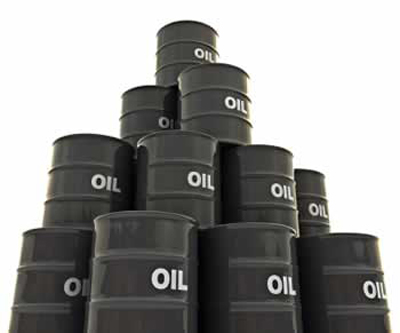Monday, 30 March 2015 16:28
 SINGAPORE: Oil prices fell on Monday as traders focused on whether Iran and six world powers would reach a deal that could add fuel to an already oversupplied market if sanctions against Tehran are lifted.
SINGAPORE: Oil prices fell on Monday as traders focused on whether Iran and six world powers would reach a deal that could add fuel to an already oversupplied market if sanctions against Tehran are lifted.
The two sides are trying to reach an agreement in nuclear negotiations by a Tuesday deadline.
“Any relaxation of Iran oil sanctions could see increased exports adding to swelling global supplies and further pressuring prices,” ANZ said.
Brent crude futures were down 42 cents at $ 55.99 by 0633 GMT as the market began to price in a potential deal with Iran. U.S. West Texas Intermediate (WTI) was down 84 cents at $ 48.03 a barrel.
Barclays said that the U.S. build-up in stocks would make its way into an already oversupplied market in the second quarter and that global demand would unlikely be strong enough to support oil prices once that happens.
“In OECD Asia, demand growth actually fell from -3 percent to -4 percent (in Q1) … Apparent demand in China was around 2 percent higher, but actual demand is likely to be lower since seasonal stockbuilding typically takes place after the start of the year,” the bank said. It added that demand growth in the OECD region had been in structural decline over the past five years.
“Continued dollar strength is (also) a headwind to the oil price recovery,” Barclays said, forecasting the dollar rising slightly above parity with the euro by Q4.
A potential climb in prices could come from an OPEC production cut, which some members have lobbied for but its biggest exporter Saudi Arabia has resisted.
“Saudi Arabia had to cut its price in Asia to ensure its crude oil remained attractive,” energy consultancy Wood Mackenzie said.
“Other suppliers looking to position themselves in Asia will have to pay close attention to the Saudi’s pricing strategy,” it added.
Morgan Stanley said that crude demand would also be dented via the refinery sector, where production tends to fall towards the middle of the year.
In the United States, the oil rig count continued to drop, although analysts said that lower drilling activity would only affect oil production later this year.
“The current rig count is pointing to U.S. production declining slightly sequentially in 2Q15 and 3Q15,” Goldman Sachs said although it added activity could bounce back in 2016 as drillers benefitted from falling production costs.
Copyright Reuters, 2015



























